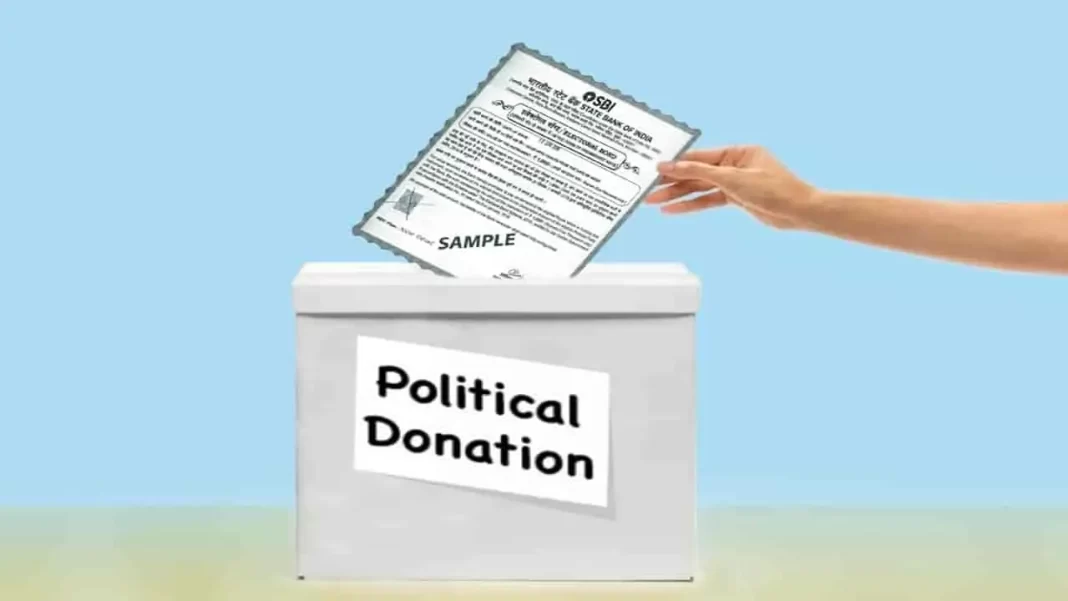The electoral bonds scheme was launched with the stated idea to ensure transparent and clean political funding and reduce unnamed cash contributions. Of late, however, the effectiveness and potential misuse of the scheme have raised questions and the matter has reached the apex court
By Dr Anshuman Jaswal
The electoral bonds scheme was introduced in 2018 with amendments to the Representation of the People Act, the Companies Act, the Income Tax Act and the RBI Act. Under the provision of the scheme, any individual could purchase electoral bonds, given that they are a citizen of India (or are established or incorporated in India). A person can buy the bond individually or jointly with others and donate it to their choice of political party which reaches the eligibility criteria.
Only an authorised bank can encash these bonds within a specified timeline. The terms of the scheme exempt individuals or companies from the need to disclose their identity publicly. But, of late, the effectiveness and potential misuse of the scheme have raised many eyebrows. The objections have made for quite a controversy in the field of political financing in India.
While the initiative was well-intended, but some evident loopholes render the scheme incompetent. The government wanted to bring in a system to make election funding process more traceable and transparent, but the anonymity clause makes it impossible to account for the donations and their motivations.
Given that any individual can purchase the bond without disclosing any details, the chances of money laundering, black money, and corruption is very high. The anonymity works like immunity for outsiders, even international figures, who might want to influence the elections and political parties for inauthentic reasons. The no-disclosure allows agreements between donors and political parties that could influence policy decisions and other movements without public accountability. Additionally, this scheme compromises the Right to Information under Article 19(1)(a) and the voters’ right to information. It fails as a democracy if the Indian government can’t provide voters, most importantly its citizens, with their fundamental rights. In short, the electoral bond scheme fails to deliver its goals for providing transparency, accountability and the integrity of our elections.
Political funding regulations and mechanisms vary from country to country. Some allow anonymous contributions, while others dictate strict disclosure. In the United States of America, its Political Action Committees and Super PACs can receive anonymous donations, but they must disclose their spending. Meanwhile, in countries like Germany and France, political contributions are publicly disclosed to facilitate the traceability of the sources. This reduces the possibility of corruption or undue influence. In contrast, India’s electoral bonds system stands out, which begs the question: is it the right move for a democracy like India?
With rising controversy over the issue, the Supreme Court of India recently directed the Election Commission of India to furnish details of the donations made to political parties along with the respective donor information. It clarified the confusion regarding the period for which an earlier 2019 order of the Supreme Court had asked for such details. In doing so, the Court has addressed the various concerns regarding transparency and accountability of the Indian electoral system that have arisen since the introduction of the scheme.
The ideal scenario would be a full disclosure to the public, but the involvement of the Supreme Court is not inconsequential. It allows for much-needed scrutiny on the issue and dispels concerns about the possible use of unethical means to influence the election process. Its timely arrival before the 2024 general elections permits the Supreme Court to issue revised guidelines and introduce further checks and balances. As citizens of India, we need healthy debates and discussions that play an integral role in shaping the trajectory of political funding and accountability in India.
—The writer is Director, NMIMS Indore


